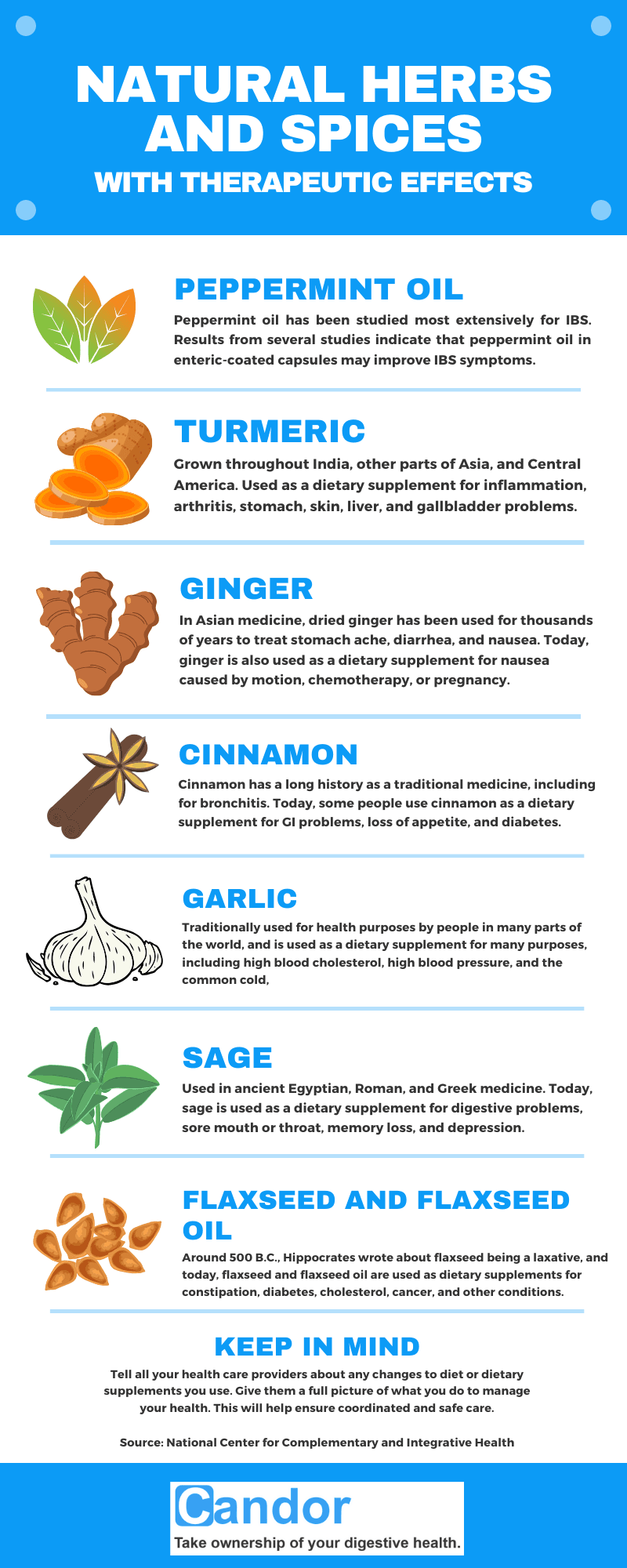
Natural Herbs and Spices
Today’s diets (sodas, sugar, corn syrup, etc.) and lifestyles (lack of sleep, stress, rushing through meals, etc.) can reduce the efficiency of our digestive system. It is important to incorporate sufficient amounts of whole foods and greens to help digestion, and it is especially important when dealing with GI conditions since there might be many foods that are simply not accessible due to negative effects on the system. Adding spices to the diet could help some people with their symptoms.
Spices have been used throughout history for their therapeutic effects, and for their role in stimulating the digestive system. For example, some spices can help improve the efficiency of the digestive system by improving food transit time in the GI tract. A slower GI tract causes more water to be absorbed out of the digested food and can cause constipation.
It is important to remember that what works for some people may not work for others even though they may share the same condition and many symptoms. Everyone’s journey with their GI disorder is unique. It is important to try any new spice or dietary supplement in moderation and always consult your medical provider or dietician before making changes.
Best wishes and health to all.
Learn more by clicking on this link.

Are you interested in finding out more about your gut health? Follow our social media accounts to be updated on all of our informative content.
And if you want to be a part of our amazing community on Facebook, you can join by clicking here.
Like us on Facebook and Follow us on Instagram
#gutproblems #gutissues #bloatingproblems #sibo#sibodiet#ibs#ibsdiet#eliminationdiet #foodintolerances#foodsensitivities#foodallergies#guthelp#healyourguthealyourlife



























